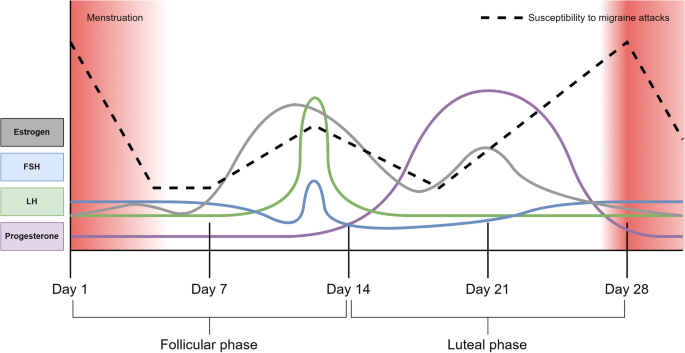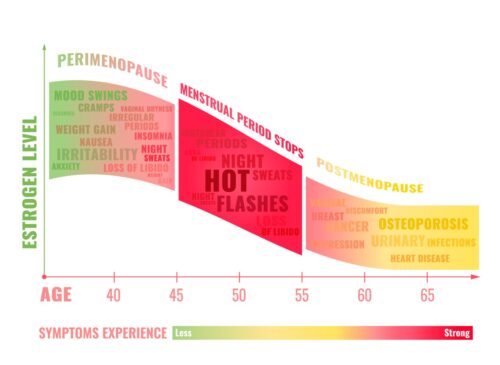Menstrual migraine is caused by estrogen withdrawal: revisiting
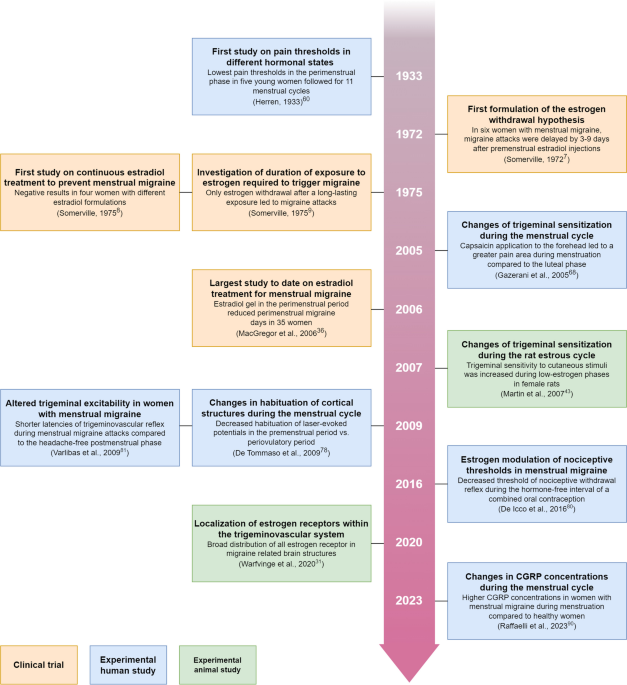
By A Mystery Man Writer
Objective To explore and critically appraise the evidence supporting the role of estrogen withdrawal in menstrual migraine. Main body Menstrual migraine, impacting about 6% of reproductive-age women, manifests as migraine attacks closely related to the menstrual cycle. The estrogen withdrawal hypothesis posits that the premenstrual drop in estrogen levels serves as a trigger of migraine attacks. Despite its wide acceptance, the current body of evidence supporting this hypothesis remains limited, warranting further validation. Estrogen is believed to exert a modulatory effect on pain, particularly within the trigeminovascular system – the anatomic and physiologic substrate of migraine pathogenesis. Nevertheless, existing studies are limited by methodologic inconsistencies, small sample sizes, and variable case definitions, precluding definitive conclusions. To improve our understanding of menstrual migraine, future research should concentrate on untangling the intricate interplay between estrogen, the trigeminovascular system, and migraine itself. This necessitates the use of robust methods, larger sample sizes, and standardized case definitions to surmount the limitations encountered in previous investigations. Conclusion Further research is thus needed to ascertain the involvement of estrogen withdrawal in menstrual migraine and advance the development of effective management strategies to address unmet treatment needs.
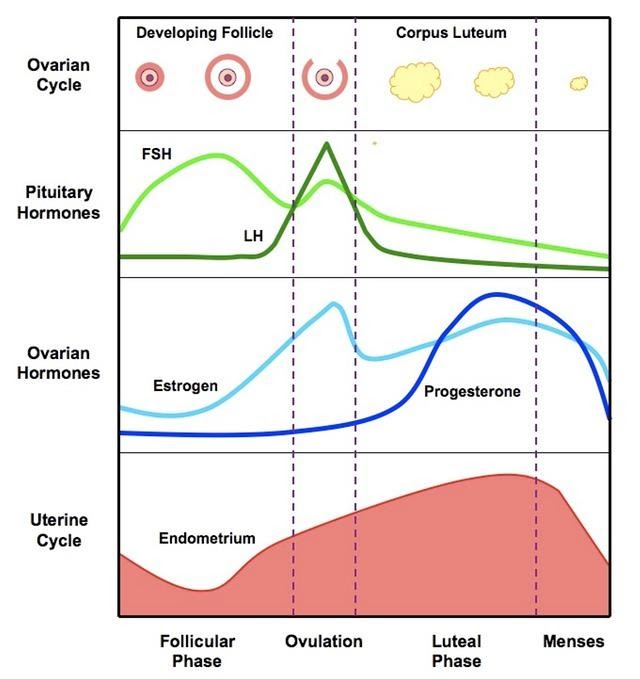
Hormonal Headaches & Menstrual Migraine
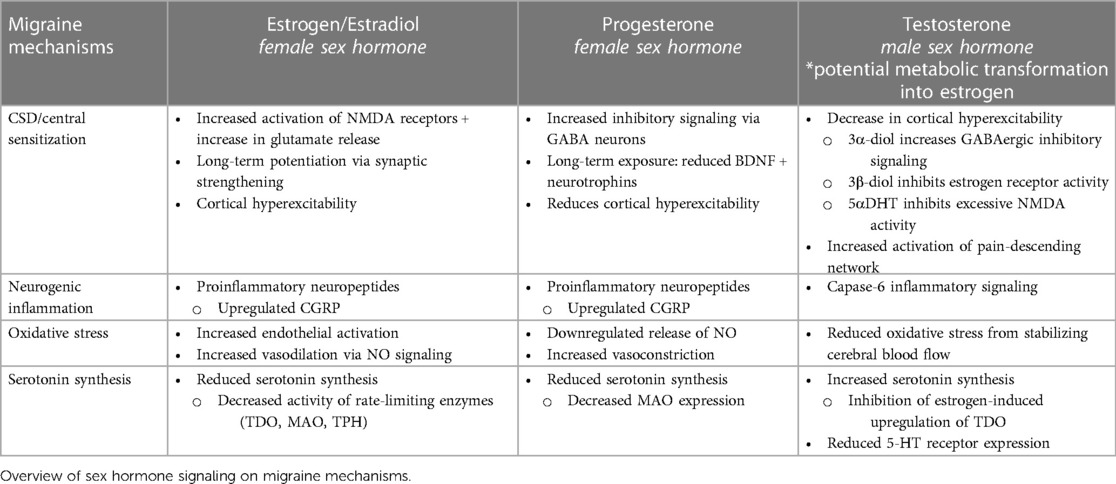
Frontiers Molecular mechanisms of hormones implicated in migraine and the translational implication for transgender patients

Migraine Nature Reviews Disease Primers

PDF) Prevalence of menstrual migraine: A population-based study

Changes in the threshold of the nociceptive flexion reflex

Shared genetic background of migraine and its comorbid diseases.

Menstrual migraine sufferer? What you need to know about why they happen--and how to preven them!

Neurological diseases: Sex and gender evidence in stroke, migraine, and Alzheimer's dementia - ScienceDirect

Differences between perimenstrual and non-perimenstrual migraine
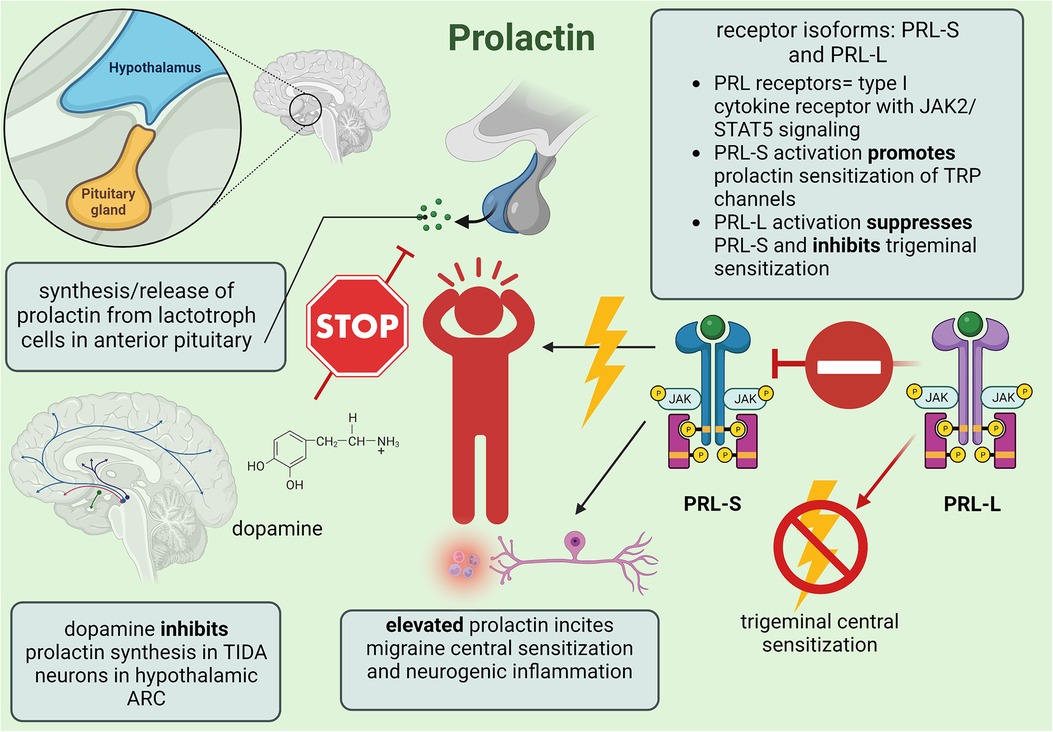
Frontiers Molecular mechanisms of hormones implicated in migraine and the translational implication for transgender patients

Relationship of migraine to estradiol levels and menstrual cycle. MM

PDF) Pain perception and laser evoked potentials during menstrual



